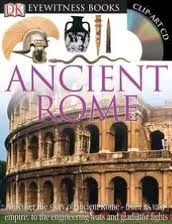Monique Storie, University of Guam, Latte Heights, GU
“Why would I want to read fiction when there are so many fascinating things on this earth to learn about?!”
We are avid readers in my house but we run the gamut in our reading preferences. My husband and I prefer fiction (I gravitate towards realistic fiction while Brett prefers modern fantasy and alternate history) but our son is a true non-fiction aficionado. As a preschooler, Ethan loved when his teacher read current events to him and would even remind her to read the newspaper in the morning when she forgot. As he grew, Ethan found facts, events, and tidbits about our lives more interesting than stories. My father, a non-fiction aficionado himself, summed up Ethan’s fascination with non-fiction by saying “Why would I want to read fiction when there are so many fascinating things on this earth to learn about?!”
As a parent and an advocate of children’s literature, I applauded and supported his reading choices–even when I personally couldn’t understand why he wanted to read DK’s Ancient Rome or Kenji Kawano’s Warriors: Navajo Code Talkers at bedtime— because I knew they were signs of him making meaningful connections between text and life (Rosenblatt, 1995). Then “tween”hood hit and I watched as the Internet became his standard method of information and entertainment. Ethan’s after-homework routine revolved around surfing the web for the newest songs, watching videos, and looking at CNN or MSN News online. Soon not only was I worried that he and I would never be able to find common ground in our reading choices, I began to worry if Ethan was going to lose interest in reading altogether.
Then came The Hunger Games series. Truth be told, Ethan found the movie before the book. After seeing the first trailer online, he became hooked and so I brought home The Hunger Games for him to read. He read and researched everything he could about the story, the author, and (of course) the movie (including the playlist). He knew details about the plot, about character development, and the themes within the story. As we waited for the movie to be released, we talked about the characters of Katniss, Gale and Peeta, their stories, and their motivations. We talked about which characters we gravitated towards and understood and which characters we saw in other people we knew.
As our conversations continued, Ethan questioned whether the people of the Capital were aware of what was going on in the districts and wondered if they were truly so superficial that they worried more about trends than about the wellbeing of others. With his comments, I could see that his thinking was fluctuating between our society and that of the story. After the movie, he admitted that he hadn’t actually finished the first book but he immediately jumped into Catching Fire and then into Mockingjay. These books became his constant summer companions.
As I thought about his actions, I realized that the Internet played a huge role in hooking him into the trilogy. Ethan’s Internet searching was a part of his meaning making process. Instead of being whisked away by the emotion within the story, he became fascinated by the premise and wanted to find out more about their society. The wikis, articles, reviews, literary analyses, and movie trivia Ethan found online provided him with details about the way that world was constructed… from what the Districts were known for to the social and political pulse of the Capital and to the ways power was maintained.
These online sources gave him insights into the characters and their stories. Ethan found others’ perspectives on the different characters helpful in establishing the characters as “real” personalities. Basically, the websites, wikis, and discussion boards—and then the movie— gave Ethan enough information about District 12 and the Capital that he could see it as a “real” world. It was then that he wanted to know their stories. It was then that he was invested in finding out how members of that society could live and/or survive, compelling him to read the whole series.
I have to admit, that until I have had to support a non-fiction reader in developing his reading strategies in fiction-dominated literature curriculum, I had not much thought about what strategies they use to engage in reading fiction. In light of this summer experience, I wonder “what other strategies do non-fiction readers have that honor their way of thinking and their reading preferences but help them to make sense of fiction”?
References
Ancient Rome. New York: DK Children’s, 2008.
Collins, Suzanne. The Hunger Games. New York: Scholastic, 2008.
Collins, Suzanne. Catching Fire. New York: Scholastic, 2009.
Collins, Suzanne. Mockingjay. New York: Scholastic, 2010.
Kawano, Kenji. Warriors: Navajo Code Talkers. Lanham, MD: Cooper Square Publishing, 1990.
Rosenblatt, Louise. Literature as Exploration (5th Ed.) New York: Modern Language Association, 1995.
Journey through Worlds of Words during our open reading hours: Monday-Friday, 9 a.m. to 5 p.m. and Saturday, 9 a.m. to 1 p.m. To view our complete offerings of WOW Currents, please visit archival stream.
- Themes: Hunger Games, Monique Storie, Suzanne Collins
- Descriptors: Student Connections, WOW Currents

